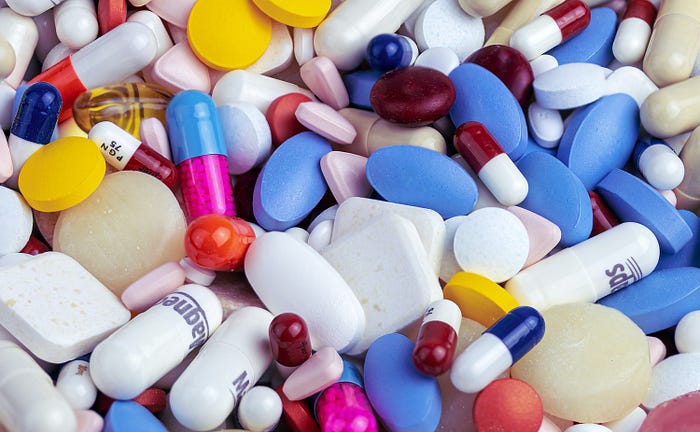Why responsible media outlets must do it anyway.

After several rolling news-weeks filled with enough shocking revelations and events to populate an entire issue of the Weekly World News, most casual news readers might have missed the recent bombshell about SSRIs and depression.
“No evidence that depression is caused by low serotonin levels, finds comprehensive review,” reported Science Daily on July 20, 2022.
The University College London found: “After decades of study, there remains no clear evidence that serotonin levels or serotonin activity are responsible for depression, according to a major review of prior research led by UCL scientists.”
“The new umbrella review- an overview of existing meta-analyses and systemic reviews- published by Molecular Psychiatry, suggests that depression is not likely caused by a chemical imbalance, and calls into question what antidepressants do,” the University College London reported.
“Most anti-depressants are selective serotonin reuptake inhibitors (SSRIs) which were originally said to work by correcting abnormally low serotonin levels,” the study admitted. “There is no other accepted pharmacological mechanism by which antidepressants affect the symptoms of depression.”
Why then do these drugs appear to help so many patients struggling with depression?
The authors of this new study believe the reason to be…placebo.
The placebo effect is something else scientists and medical professionals still can’t explain. Why placebos work on the human brain is one of the near-infinite mysteries science has yet to solve.
We may yet get an answer, however. There are hopeful signs, including the fact that we’ve managed to map the human genome, something scientists insisted only 20 years ago would never be possible during the lifetime of any human currently living.
The human brain, its many intricacies, its uniqueness in the animal kingdom, its evolutionary development, remains quite a cipher. Even the location of the human brain is a question neuroscientists and neurobiologists are struggling to answer.
The human brain, recent brain-science research insists, extends well beyond the cranium into the gut- confirming what we humans have long known about what happens to our stomachs when we are under threat, afraid, or in love.
The idea that SSRIs have been treating a chemical imbalance that doesn’t exist, or at the very least doesn’t cause depression, is something with which the medical establishment has yet to fully grapple.
Not since Dr. Barry Marshall proved a bacteria called Helicobacter pylori was actually responsible for ulcers in 2005- not stress as was long thought and accepted by the medical community- has anything shaken the scientific establishment so thoroughly.
Dr. Marshall, after getting nowhere with all his data, experiments and research, took the bacteria Helicobacter pylori himself- following a long tradition of scientists who have served as their own guinea pigs. Marshall swallowed a solution containing bacteria derived from an ulcer-afflicted patient, developed the condition immediately, then cured himself, winning the Nobel Prize in medicine that year.
These newest findings on depression are sure to send similar shockwaves throughout the medical and pharmacological establishment.
“It’s always difficult to prove a negative, but I think we can safely say that after a vast amount of research conducted over several decades, there is no convincing evidence that depression is caused by serotonin abnormalities, particularly by lower levels or reduced activity of serotonin,” writes the study’s lead author Professor Joanna Moncrieff
While the the most recent findings on SSRIs and depression are unassailable, and will likely become the centerpiece for a new generation of doctors and scientists trying to unlock the secrets of depression, a major question remains.
Why isn’t this bigger news?
Tens of millions of Americans have been prescribed SSRIs for depression. This new finding upends decades of accepted wisdom in the medical community.
There are quite a few reasons why major media outlets may be reluctant to cover this story, as enormous and far-reaching as it is.
Perhaps they believe this is no time to sow distrust and doubt about the scientific and medical community; people might draw the wrong conclusions.
Major media outlets may believe that by covering this story, it might encourage people prescribed SSRIs to stop taking them. This may indeed be a danger as many SSRIs can cause serious side effects if a patient stops taking them cold-turkey.
This news might even prevent people suffering from depression and other mental health issues from seeking care in the first place. The news might even make the placebo effect stop working.
While these concerns are certainly real, the decision not to report on a major medical finding like this one is far more irresponsible and potentially dangerous.
Even without help of corporate media outlets, this news is not going away.
The story is already spreading on alternative news sites and on social media. Those being treated with SSRIs are already approaching their prescribing doctors for guidance.
Without a robust telling of this story in the mainstream, alternative news sources, including social media sites, will be shaping the conversation.
What people suffering from depression, who have been prescribed SSRIs by their doctors, need now is the best information currently available on this vital subject.
If media outlets really want to help medical science, credibility and all, they would do far better to shout this news from the rooftops, along with the best medical advice of all:
If you’re taking SSRIs to treat depression and are concerned about these new findings, talk to your doctor.
(contributing writer, Brooke Bell)